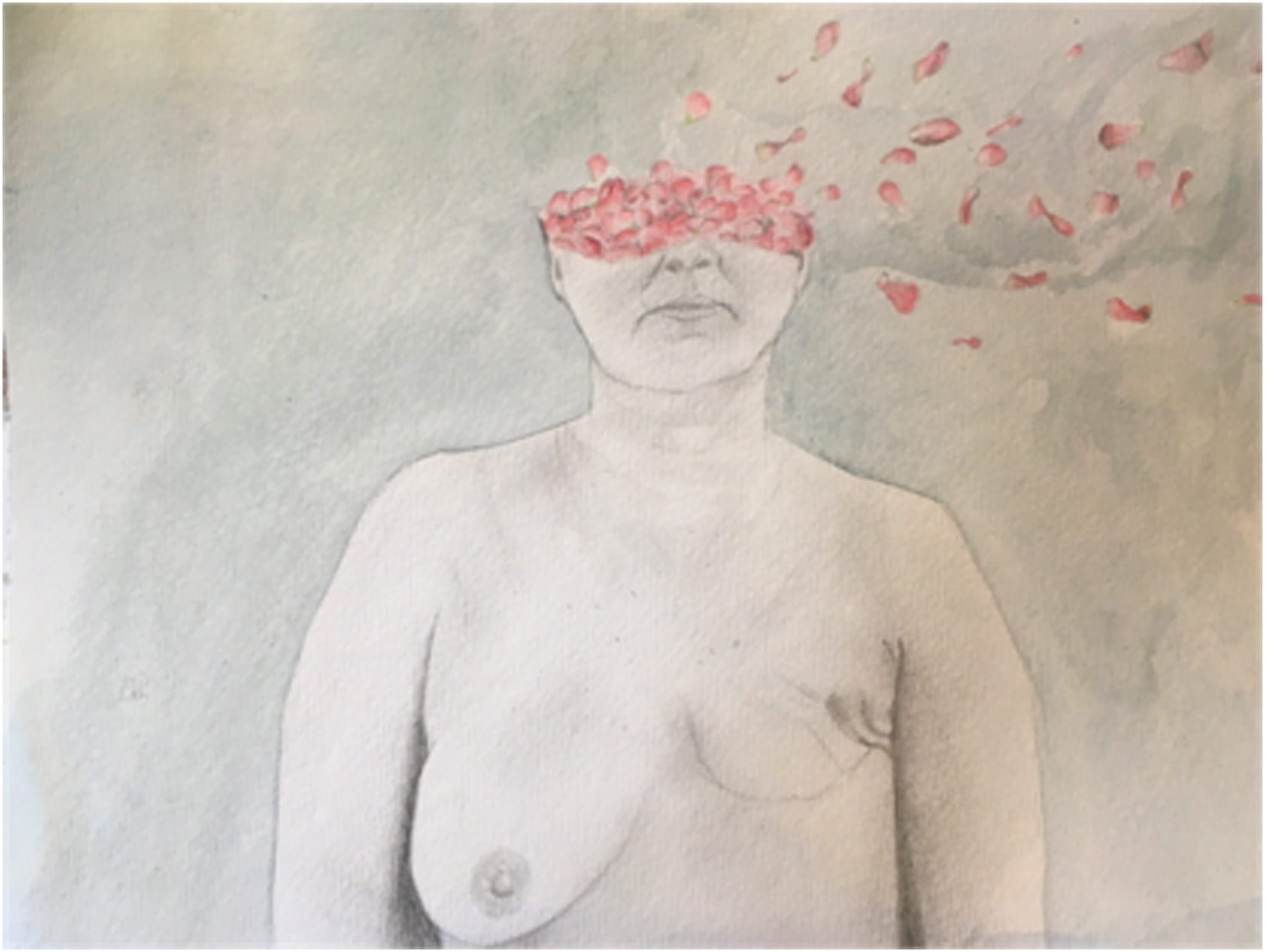Loss
Creative Piece
In this piece I have tried to incorporate all of Mrs Lane’s key emotions and those of other patients. The rose petals being blown away represent the feeling of loosing her femininity and I have chosen to focus on the eyes because they represent the identity of a person.
The main image is represented by a simple monochrome drawing because for Mrs Lane the decision not to have a mastectomy was simple black and white and she didn’t see the surgery in a positive light even though it could be life-saving. I have used a simple blue for the rest of the image in order to direct the attention of the viewer on the woman and to trigger thoughts about what she would be feeling.
The process of making this piece of art was very thought-provoking and I was able to explore the patient’s situation from a first person perspective in a lot more depth which I think will be useful to be able to relate to future patients and see their point of view. The experience highlighted to me how emotional health connects to bodily health and having this awareness allows me to implement this and offer support to future patients.
The process of undertaking the piece of artwork also really developed the understanding I had gained from my reading – allowing me to put all the theoretical implications of having a breast cancer diagnosis on a patient’s emotional health to use and directly see how that may affect the lady I had spoken to.
Having an understanding of the intricate impacts of stresses would be beneficial for the patient, as they would be supported by their practitioner. It may not always be possible to know exactly how the patient will react as each person is unique. However, being aware of the possibilities and applying general concepts could be greatly beneficial, nevertheless, time constraints on many appointments forces practitioners to direct conversations during consultation towards physical symptoms and treatment options.
Making patients aware of ways that they can take control of their own health through techniques like mindfulness is important as well as highlighting the different support networks available to them – so that they never feel alone coping with the burden of having the diagnosis and trying to carry on with life as normal, whilst dealing with the symptoms and uncertainty surrounding the future.

I think this piece of art is really powerful. It portrays the devastating impact that cancer and its treatment can have on an individual. The image of something beautiful like rose petals being blown away from the individuals face, captures the loss of femininity and identity. The petals also convey a sense of fragility of the mind, and how it would be very easy for them to feel less worthy and less feminine if they went ahead with the mastectomy. This work brings up important questions about treatments. A doctors first concern is always for their patient; hence they want to provide a possible cure for them. However, if this cure leaves their patient feeling less worthy and less of the person they were before, then is curing always the best option? The artist has discussed this and talks about the importance of shared decision making and a close doctor-patient relationship, which I agree is likely to bring the best outcome in circumstances like these.